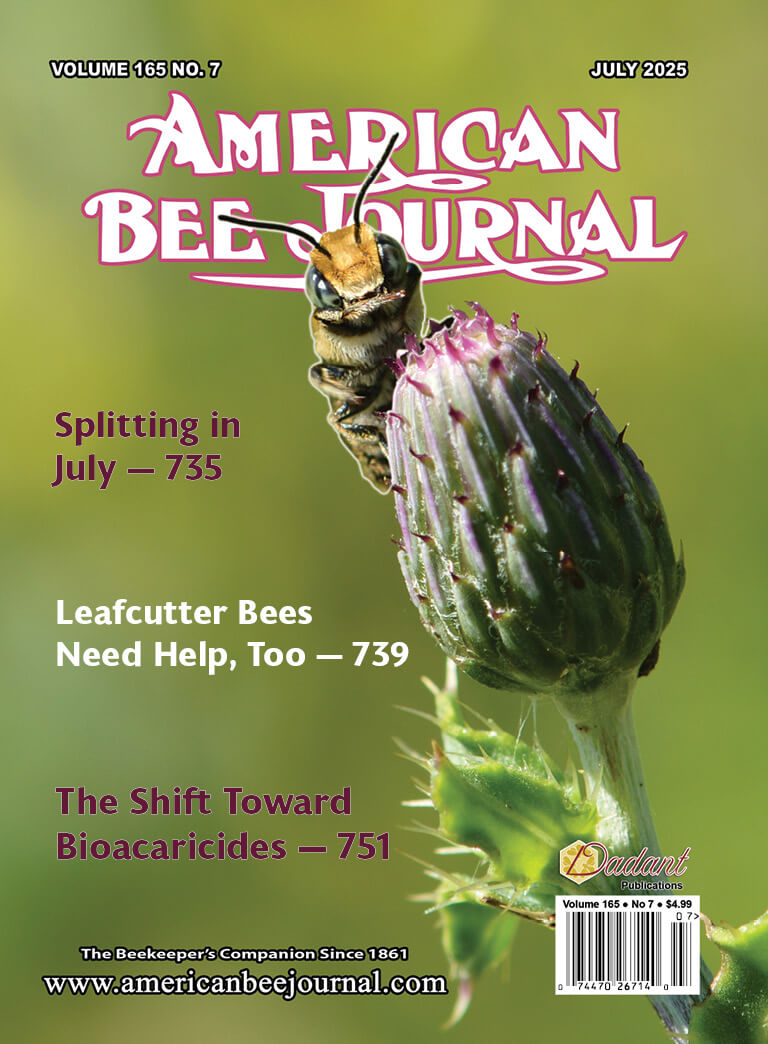Q Bee House or Bee Hive?
A group in the UK is selling a frameless bee house. It would not be legal in the USA. It is something between a managed colony and a truly feral colony. My question for you: What would be the ethical, i.e., good for bees and people (& legal) version of such a bee house for use in the USA?
Thank you,
Frank Linton
A
In my opinion it is not a good decision to sell a device like this in the U.S. that is designed to allow an unmanaged colony to die. Honey bees pre-Varroa were capable of living wild, feral without human management. When equipment was developed to allow movable frame beekeeping, this was for the beekeeper not honey bees. Honey bees could swarm or abscond and successfully live in a hollow tree or any cavity. You could be a commercial or hobby beekeeper and look at bees a couple times a year, take supers off and extract honey and watch TV or go hunting or fishing the rest of the year. They didn’t need us Frank.
However, when Varroa was accidentally introduced, this changed everything in beekeeping. Honey bees went from tolerating us to needing us. They went from wild animals who adapted to temporarily living in a container cavity (Langstroth Hive) to becoming ‘livestock’ or ‘pets’ that required our best efforts to No.1 control Varroa and No. 2 to control the Virus/ Varroa complex, as well as those secondary predators such as the small hive beetle that target weakening and weak colonies.
The statement in the advertisement link you shared indicating that the owner can’t open the hive to do anything at all and that honey bees living in the hollow box can control parasites and diseases by themselves is totally irresponsible. Unbelievable in 2017. If you want to follow their example and make a “Varroa Bomb” to act as a reservoir for Varroa to infest colonies in the area when they are robbed out, simply take the frames out of your current standard movable frame hive and shake a colony in it and let them free-form a mess. It wouldn’t be right, legal or responsible to let a colony die because of this decision. I wonder what PETA would say?
Don’t do it. Take Care. Jerry
Q POWDERED SUGAR VARROA CONTROL?
Hello Jerry. Thank you for your very wise council on honey bee matters. I am using powdered sugar for the mites. In Sept.2016 ABJ, “KEEPING HONEY BEES SAFE FROM VARROA” Meghan Milbrath PHD, advises that powdered sugar may damage brood in uncapped cells. I am not aware that that has been mentioned in any of the reports on this particular treatment. My question: Is it true, false, or someplace in between?
Thanks,
Bob Baron
A
Thank you for the compliment. It is appreciated. The short answer, which I have a hard time with, is that it is someplace in between. I personally don’t think it is a given. But, let’s look at why you or anybody is doing this. Varroa is our beekeeper No. 1 honey bee health challenge for all the reasons we all know. We need to control Varroa mites or the colony will dwindle, become what is called a Varroa Bomb, meaning a reservoir of Varroa that can infest all colonies in a large radius when they are robbed out, and then die. Killing, hurting, damaging a little bug on a big bug is tough to do without hurting our prized big bug with the chemical treatments that are labelled for Varroa control. Using powdered sugar as part of an IPM (Integrated Pest Management) strategy to reduce Varroa populations and not have to go to chemical treatments always is a great idea I think.
I did a mite roll a couple weeks ago to assess mite levels and how well my …


